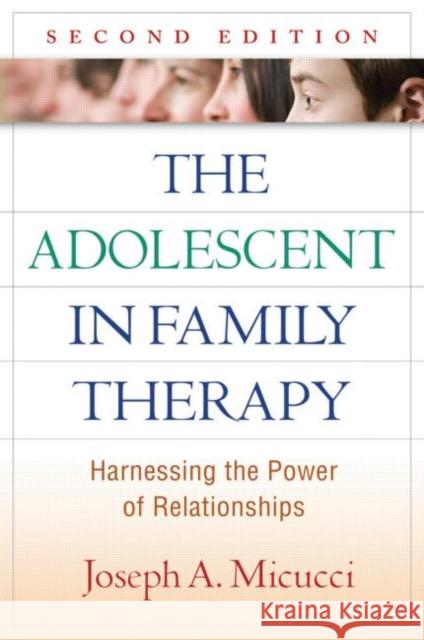The Adolescent in Family Therapy: Harnessing the Power of Relationships » książka
The Adolescent in Family Therapy: Harnessing the Power of Relationships
ISBN-13: 9781606233306 / Angielski / Twarda / 2009 / 368 str.
Rich with clinical wisdom, this successful text and practitioner guide offers a comprehensive framework for treating adolescent problems in the family context. Even as teenagers become increasingly independent, Joseph Micucci shows, they still need parental guidance and nurturance. By strengthening family relationships, clinicians can alleviate symptoms and promote behavioral change. Vivid examples and session transcripts illustrate specific strategies for treating eating disorders, depression, anxiety, defiance, underachievement, and other frequently encountered challenges. Weaving together family therapy techniques with ideas from psychodynamic and cognitive-behavioral approaches, the book has a pragmatic focus on effective interventions for getting adolescent development back on track. New to This Edition*Thoroughly updated to reflect current research and reader feedback.*Chapter on adolescent anxiety disorders.*Expanded coverage of attachment issues; lesbian, gay, and bisexual youth; and racial and ethnic identity.*New case material, one of the book's most popular features.
Much of the writing on therapy with adolescents suggests contradictory approaches. On the one hand, therapists are advised to encourage the teenager's individuality and separation; on the other, they are urged to help parents "pull in the reins" and re-establish a strong sense of authority. This book proposes that what is missing from both of these formulations is a focus on strengthening the quality of family relationships and ensuring that adolescents receive the ongoing parental nurturance they need. Presenting a developmentally grounded approach to treating a wide range of adolescent problems, Joseph Micucci shows how troubled teenagers and their parents can be helped to use family relationships as catalysts for growth and change. Filled with realistic case examples, step-by-step discussions of the process of assessment and therapy, and straightforward clinical advice, the book describes specific family intervention strategies for eating disorders, depression, defiant behavior, underachievement, stress caused by psychotic symptoms, and other frequently encountered conditions. Attention is also given to working with schools and the special challenges of treating multiproblem families.











